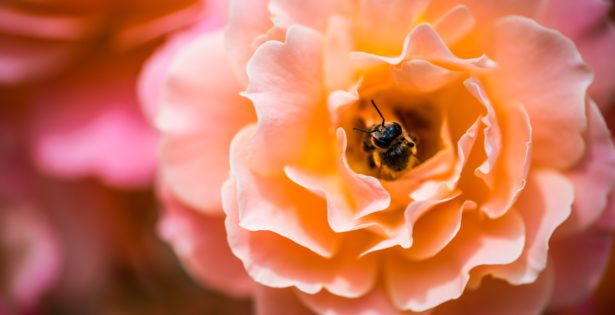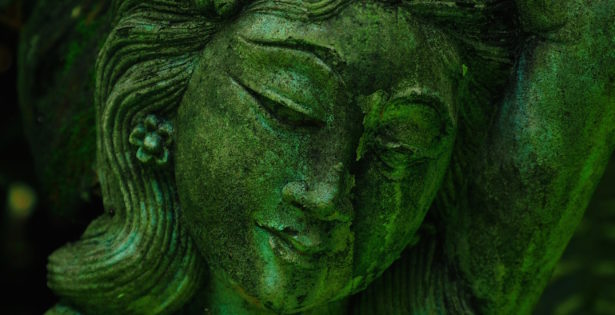WP_Query Object
(
[query] => Array
(
[category__in] => Array
(
[0] => 26
)
[post__not_in] => Array
(
[0] => 7325
)
[posts_per_page] => 50
[ignore_sticky_posts] => 1
[orderby] => desc
[_shuffle_and_pick] => 3
)
[query_vars] => Array
(
[category__in] => Array
(
[0] => 26
)
[post__not_in] => Array
(
[0] => 7325
)
[posts_per_page] => 50
[ignore_sticky_posts] => 1
[orderby] => desc
[_shuffle_and_pick] => 3
[error] =>
[m] =>
[p] => 0
[post_parent] =>
[subpost] =>
[subpost_id] =>
[attachment] =>
[attachment_id] => 0
[name] =>
[pagename] =>
[page_id] => 0
[second] =>
[minute] =>
[hour] =>
[day] => 0
[monthnum] => 0
[year] => 0
[w] => 0
[category_name] => relationships_forgiveness
[tag] =>
[cat] => 26
[tag_id] =>
[author] =>
[author_name] =>
[feed] =>
[tb] =>
[paged] => 0
[meta_key] =>
[meta_value] =>
[preview] =>
[s] =>
[sentence] =>
[title] =>
[fields] =>
[menu_order] =>
[embed] =>
[category__not_in] => Array
(
)
[category__and] => Array
(
)
[post__in] => Array
(
)
[post_name__in] => Array
(
)
[tag__in] => Array
(
)
[tag__not_in] => Array
(
)
[tag__and] => Array
(
)
[tag_slug__in] => Array
(
)
[tag_slug__and] => Array
(
)
[post_parent__in] => Array
(
)
[post_parent__not_in] => Array
(
)
[author__in] => Array
(
)
[author__not_in] => Array
(
)
[search_columns] => Array
(
)
[suppress_filters] =>
[cache_results] => 1
[update_post_term_cache] => 1
[update_menu_item_cache] =>
[lazy_load_term_meta] => 1
[update_post_meta_cache] => 1
[post_type] =>
[nopaging] =>
[comments_per_page] => 50
[no_found_rows] =>
[order] => DESC
)
[tax_query] => WP_Tax_Query Object
(
[queries] => Array
(
[0] => Array
(
[taxonomy] => category
[terms] => Array
(
[0] => 26
)
[field] => term_id
[operator] => IN
[include_children] =>
)
)
[relation] => AND
[table_aliases:protected] => Array
(
[0] => wp_term_relationships
)
[queried_terms] => Array
(
[category] => Array
(
[terms] => Array
(
[0] => 26
)
[field] => term_id
)
)
[primary_table] => wp_posts
[primary_id_column] => ID
)
[meta_query] => WP_Meta_Query Object
(
[queries] => Array
(
)
[relation] =>
[meta_table] =>
[meta_id_column] =>
[primary_table] =>
[primary_id_column] =>
[table_aliases:protected] => Array
(
)
[clauses:protected] => Array
(
)
[has_or_relation:protected] =>
)
[date_query] =>
[request] =>
SELECT SQL_CALC_FOUND_ROWS wp_posts.ID
FROM wp_posts LEFT JOIN wp_term_relationships ON (wp_posts.ID = wp_term_relationships.object_id)
WHERE 1=1 AND wp_posts.ID NOT IN (7325) AND (
wp_term_relationships.term_taxonomy_id IN (26)
) AND ((wp_posts.post_type = 'post' AND (wp_posts.post_status = 'publish' OR wp_posts.post_status = 'acf-disabled')))
AND ID NOT IN
(SELECT `post_id` FROM wp_postmeta
WHERE `meta_key` = '_pilotpress_level'
AND `meta_value` IN ('','employee')
AND `post_id` NOT IN
(SELECT `post_id` FROM wp_postmeta
WHERE `meta_key` = '_pilotpress_level'
AND `meta_value` IN ('' )))
GROUP BY wp_posts.ID
ORDER BY wp_posts.post_date DESC
LIMIT 0, 50
[posts] => Array
(
[0] => WP_Post Object
(
[ID] => 7210
[post_author] => 5
[post_date] => 2018-12-18 21:02:24
[post_date_gmt] => 2018-12-18 21:02:24
[post_content] => When a physical gift is given, we see that the person who gives it technically loses something and the recipient gains it. So it’s natural that from witnessing the dynamic of physical giving, we’d conclude that this is how all giving and receiving operates. But the truth is usually the opposite.
Most of what we give is intangible. We give people our love, our hope, our admiration, our blessings ... and also our grievances, our scorn, our envy, even our condemnation. And the rules are quite different with these nonphysical offerings.
First, there’s no loss. Thus, the negative feelings we direct at our fellow humans don’t leave us in the process; instead we get to keep them, amplify them, and steep in them. It’s a bit like pooping in our own bathtub.
Luckily, the same is true of the virtuous gifts we offer. We don’t lose them because they don’t belong to the personality and body we call ME. These virtues are the inexhaustible Light of the Universe, the Divine Love that we are and which wants to be expressed through us. That’s my opinion anyway, and I believe that if you practice this, you, too, will experience it as true.
Second, the giver becomes the recipient. When we direct negative energy at others we are obligated to experience it ourselves. When we attack others with our thoughts, we attack ourselves. But again, this is also true of positive feelings, and they carry a much greater magnitude of power.
So, if you want more peace, lightness, clarity, strength, forgiveness, or love, give it abundantly to others. Maybe you’re thinking, “But I don’t have peace to give to others! That’s why I
want it.” But these virtues aren’t outside or separate from you. You wouldn’t exist without them. They are virtually everything that you are. If you can’t recognize this, it’s not your fault. It’s because, like most people, you have a survival-driven mind that has been trained to hyperfocus on danger, loss, and flaws. And without really understanding the consequences, you have habitually given that mind the majority of your attention. Fortunately, that attention can be shifted, and the mind can be disciplined and transcended.
Our virtues need only to be uncovered and shared. In fact, I would venture to say that we don’t truly know these beautiful truths until we offer them to others. In order to offer them, we must call them up within ourselves. Therefore, making such a gift is an affirmation that we do possess these qualities. As long as we’re reluctant to give them away (even to our enemies) we reinforce the belief that they’re limited, and that more for one means less for another. Giving them away instantly corrects this misperception. Try it. You’ll see.
I encourage you this holiday season (and forever) to do two things. First, make a practice of watching your mind throughout the day. When you catch yourself harboring negative thoughts, shift your attention to something else. Imagine you are in martial arts training and you need to develop laser-like focus. You have no use for mental pollution. Release it. If it helps, you can thank your mind for presenting you with its concerns, but reassure it that it no longer needs to police the world.
Second, give to others the virtues that you wish to receive. Start by silently offering peace or love, or light or vision to those who are closest to you. Notice what happens within yourself when you do this. Then try it with those in your broader community, including the strangers you see on the street and in stores. Then practice with those against whom you harbor grievances, including people you know personally as well as figures in the news and internet trolls. Then try it with the whole world.
We can awaken the planet to a new reality, starting with ourselves.
I offer you love, peace, and lightness,
Peter
[post_title] => DIY: Get what you REALLY want for Christmas
[post_excerpt] =>
[post_status] => publish
[comment_status] => open
[ping_status] => open
[post_password] =>
[post_name] => diy-get-really-want-christmas
[to_ping] =>
[pinged] =>
[post_modified] => 2019-05-28 22:13:59
[post_modified_gmt] => 2019-05-28 22:13:59
[post_content_filtered] =>
[post_parent] => 0
[guid] => http://thedragontree.com/?p=7210
[menu_order] => 0
[post_type] => post
[post_mime_type] =>
[comment_count] => 2
[filter] => raw
[webinar_id] => 0
)
[1] => WP_Post Object
(
[ID] => 7912
[post_author] => 3
[post_date] => 2020-06-24 22:38:34
[post_date_gmt] => 2020-06-24 22:38:34
[post_content] => One
of the greatest sources of pain I’ve witnessed during the pandemic is the perception of restricted freedom. There have been some measurable restrictions on our freedoms, like the freedom to gather in large groups, the freedom to enter stores without a mask on, or the freedom to have an open business. There have been some virtual restrictions too, like the freedom to do everyday activities – touching your face, hugging people, shopping, etc. – without the worry of contracting a serious disease.
We have control over some aspects of the hardships of pandemic life but not others; I’d like to address what we can control. In my opinion, the majority of this pain comes from illusions of constraint. And one of the main ways we perpetuate such illusions is through judgment.
There are micro-judgments and macro-judgments. They’re not really different, but the macro judgments tend to be bigger, more conscious stances you’ve taken on people, events, issues, etc. If someone were to ask what you think about Donald Trump or Star Trek or cilantro, your judgments would probably be evident. Micro-judgments are harder to see and generally harder to change since they’re part of the fundamental nature of the mind, they’re happening constantly, and they’re often subconscious. The mind labels and judges as good or bad nearly everything we experience.
“This habit of categorizing and judging our experience locks us into automatic reactions that we are not even aware of and that often have no objective basis at all,” writes Jon Kabat-Zinn in Full Catastrophe Living. “These judgments tend to dominate our minds, making it difficult for us ever to find any peace within ourselves or to develop any discernment as to what may actually be going on, inwardly or outwardly.”
We’re rarely aware of how much we judge and how this impacts us. For each thing we judge as bad there tends to be some form of closing, aversion, or resistance. We might experience this as a subtle (or not so subtle) bodily feeling of tension. The judgmental thought might give rise to other contractive thoughts such as: No. I don’t like it. I’m not that way. That’s not fair. Life / the world shouldn’t be this way. This is wrong / bad. I can’t tolerate this. To the extent that these judgments fill our consciousness (and go unchallenged) we experience that much less freedom.
Even the things we judge as good can spur a similar kind of constraint as subconscious thoughts arise like: I want it always to be like this. I don’t want this to end. Why can’t it always be this way? What’s wrong with me that I’m not enjoying this as much as I think I should? Thus, even encounters with things we like can have a contractive effect on us when judgment takes hold and we give ourselves over to it.
When it comes to our experience of freedom, imagined restrictions might as well be metal shackles.
The good news is that our judgments can be challenged, transcended, or compassionately witnessed without letting them influence us. The bad news is that this takes work and most of us are in the lazy habit of letting our mind run the show.
My mentor Matt Garrigan used to say, “You are not your mind. You have a mind.” Like so many spiritual truths, it’s basically worthless as an intellectual concept to chew on. It only works when you start living it, and then it’s life changing.
You might begin with an openness to the possibility that what your mind has to say is neither true nor important. But most minds will argue strongly against not being the center of your attention, so it’s often best to lead with awareness itself rather than thoughts about thoughts. You just sit, breathe naturally, and watch your thoughts – many of them judgments – come and go. If you don’t attach to them, don’t engage with them, don’t try to stop them, don’t judge them, and don’t resist them, you eventually begin to experience that you are not your mind. And this is freedom.
It’s often called cultivating the witness state. I like to call it practicing innocence.
The basis for making judgments is the assumption that we know. If we’re going to judge every facet of life, we must believe we’re qualified to do so, and this feeds our sense of self-importance and inflates the ego, making it all the more judgy.
Innocence is relinquishing our position as judge, admitting we may not have the qualifications, and being open to a reality that we haven’t predefined for ourselves.
Innocence doesn’t imply naivety, and non-judgment isn’t a lack of discernment. In fact, it’s only when we drop all our prejudices that we’re able to see the truth. If anything, it’s naïve to always think we already know. It’s arrogant to believe we can hear the truth if we only listen to our own inner commentary. And it’s foolhardy to put more stock in our mind – a device we created – than in pure experience.
When we’re scared or stressed it’s more difficult to practice innocence, and we can get even more judgy than usual. Right now there’s a lot of judgment about whether people are wearing masks or not, about social distancing, about how everyone is dealing with racism, about the great uncertainty of the future. I invite all of us to notice these judgments, to take a deep breath, and to let them go for now. Can you feel the slight increase in "breathing room" that happens? Imagine how much freer you’d be if you released judgments all the time and the habit of automatically believing them began to disappear.
What’s your experience with judgment and innocence? What happens when you let your inner judge direct you? What happens when you just notice these judgments and your reactions to them? Who are you when you expand into that Awareness that witnesses and contains the mind? Share with our community in the comments section below.
Be well,
Peter
[post_title] => Suspending Judgment
[post_excerpt] =>
[post_status] => publish
[comment_status] => open
[ping_status] => open
[post_password] =>
[post_name] => suspending-judgement
[to_ping] =>
[pinged] =>
[post_modified] => 2020-06-29 18:20:59
[post_modified_gmt] => 2020-06-29 18:20:59
[post_content_filtered] =>
[post_parent] => 0
[guid] => http://thedragontree.com/?p=7912
[menu_order] => 0
[post_type] => post
[post_mime_type] =>
[comment_count] => 14
[filter] => raw
[webinar_id] => 0
)
[2] => WP_Post Object
(
[ID] => 8906
[post_author] => 3
[post_date] => 2022-12-29 21:18:13
[post_date_gmt] => 2022-12-29 21:18:13
[post_content] =>
Ah, the New Year. It’s fresh and innocent and undefined. Except for the things you already have scheduled for 2023. And everything you have already set into motion that is likely to continue to play out in the coming year and beyond. But besides that, it’s an empty canvas!
Last week I recommended keeping your resolutions simple – just choosing a single thing. This week I want to encourage you to put that into a context you define for this year by choosing a theme for 2023.
If you have our Dreambook, there’s a section on Theme of the Year and you can write it in there. If you don’t have the Dreambook, or even if you do but wish to make this a bit more special, I encourage you to write your theme on a nice piece of paper with a good pen and frame it or keep it in a place where you’ll see it every day.
Here are some questions to help guide you to your theme as you visualize a wonderful, productive, peaceful, playful, successful coming year.
Who do you want to BE this year? What aspect of your potential do you want to cultivate this year?
What will you bring to your community? How will you be a positive influence on your environment?
What will you be a channel for? How will you speak intentionally?
How will you grow this year? How will the world respond to your love and light?
Take plenty of time with this and consider writing your answers down to see what comes through. Out of all these inspirations, which feels like it’s coming from your Highest Self? Which feels the most compelling? Which would benefit both you and your community? What is the emerging theme?
Here are some examples: The Year of Loving Myself Completely. The Year of Living my Purpose. The Year of Learning to Trust. The Year of Shining my Light Upon the World. The Year of Owning My Power. The Year of Healing my Body. The Year of Playfulness. The Year of Lightheartedness. The Year of Remembering We’re All Connected. The Year of Forgiveness. The Year of Great Healing. The Year of Simplicity. The Year of Living Through My Heart.
After you refine your theme and write it down, try to read it ever morning, and if you’ve got a minute, feel into how life will be as you embody this theme, tell yourself, “I’m already on my way. Today I choose to stay conscious of this theme and to find ways to live it.”
Wishing you your best year yet,
Peter
[post_title] => The Theme of 2023
[post_excerpt] =>
[post_status] => publish
[comment_status] => open
[ping_status] => open
[post_password] =>
[post_name] => the-theme-of-2023
[to_ping] =>
[pinged] =>
[post_modified] => 2022-12-29 21:19:21
[post_modified_gmt] => 2022-12-29 21:19:21
[post_content_filtered] =>
[post_parent] => 0
[guid] => https://thedragontree.com/?p=8906
[menu_order] => 0
[post_type] => post
[post_mime_type] =>
[comment_count] => 0
[filter] => raw
[webinar_id] => 0
)
)
[post_count] => 3
[current_post] => -1
[before_loop] => 1
[in_the_loop] =>
[post] => WP_Post Object
(
[ID] => 7210
[post_author] => 5
[post_date] => 2018-12-18 21:02:24
[post_date_gmt] => 2018-12-18 21:02:24
[post_content] => When a physical gift is given, we see that the person who gives it technically loses something and the recipient gains it. So it’s natural that from witnessing the dynamic of physical giving, we’d conclude that this is how all giving and receiving operates. But the truth is usually the opposite.
Most of what we give is intangible. We give people our love, our hope, our admiration, our blessings ... and also our grievances, our scorn, our envy, even our condemnation. And the rules are quite different with these nonphysical offerings.
First, there’s no loss. Thus, the negative feelings we direct at our fellow humans don’t leave us in the process; instead we get to keep them, amplify them, and steep in them. It’s a bit like pooping in our own bathtub.
Luckily, the same is true of the virtuous gifts we offer. We don’t lose them because they don’t belong to the personality and body we call ME. These virtues are the inexhaustible Light of the Universe, the Divine Love that we are and which wants to be expressed through us. That’s my opinion anyway, and I believe that if you practice this, you, too, will experience it as true.
Second, the giver becomes the recipient. When we direct negative energy at others we are obligated to experience it ourselves. When we attack others with our thoughts, we attack ourselves. But again, this is also true of positive feelings, and they carry a much greater magnitude of power.
So, if you want more peace, lightness, clarity, strength, forgiveness, or love, give it abundantly to others. Maybe you’re thinking, “But I don’t have peace to give to others! That’s why I
want it.” But these virtues aren’t outside or separate from you. You wouldn’t exist without them. They are virtually everything that you are. If you can’t recognize this, it’s not your fault. It’s because, like most people, you have a survival-driven mind that has been trained to hyperfocus on danger, loss, and flaws. And without really understanding the consequences, you have habitually given that mind the majority of your attention. Fortunately, that attention can be shifted, and the mind can be disciplined and transcended.
Our virtues need only to be uncovered and shared. In fact, I would venture to say that we don’t truly know these beautiful truths until we offer them to others. In order to offer them, we must call them up within ourselves. Therefore, making such a gift is an affirmation that we do possess these qualities. As long as we’re reluctant to give them away (even to our enemies) we reinforce the belief that they’re limited, and that more for one means less for another. Giving them away instantly corrects this misperception. Try it. You’ll see.
I encourage you this holiday season (and forever) to do two things. First, make a practice of watching your mind throughout the day. When you catch yourself harboring negative thoughts, shift your attention to something else. Imagine you are in martial arts training and you need to develop laser-like focus. You have no use for mental pollution. Release it. If it helps, you can thank your mind for presenting you with its concerns, but reassure it that it no longer needs to police the world.
Second, give to others the virtues that you wish to receive. Start by silently offering peace or love, or light or vision to those who are closest to you. Notice what happens within yourself when you do this. Then try it with those in your broader community, including the strangers you see on the street and in stores. Then practice with those against whom you harbor grievances, including people you know personally as well as figures in the news and internet trolls. Then try it with the whole world.
We can awaken the planet to a new reality, starting with ourselves.
I offer you love, peace, and lightness,
Peter
[post_title] => DIY: Get what you REALLY want for Christmas
[post_excerpt] =>
[post_status] => publish
[comment_status] => open
[ping_status] => open
[post_password] =>
[post_name] => diy-get-really-want-christmas
[to_ping] =>
[pinged] =>
[post_modified] => 2019-05-28 22:13:59
[post_modified_gmt] => 2019-05-28 22:13:59
[post_content_filtered] =>
[post_parent] => 0
[guid] => http://thedragontree.com/?p=7210
[menu_order] => 0
[post_type] => post
[post_mime_type] =>
[comment_count] => 2
[filter] => raw
[webinar_id] => 0
)
[comment_count] => 0
[current_comment] => -1
[found_posts] => 55
[max_num_pages] => 2
[max_num_comment_pages] => 0
[is_single] =>
[is_preview] =>
[is_page] =>
[is_archive] => 1
[is_date] =>
[is_year] =>
[is_month] =>
[is_day] =>
[is_time] =>
[is_author] =>
[is_category] => 1
[is_tag] =>
[is_tax] =>
[is_search] =>
[is_feed] =>
[is_comment_feed] =>
[is_trackback] =>
[is_home] =>
[is_privacy_policy] =>
[is_404] =>
[is_embed] =>
[is_paged] =>
[is_admin] =>
[is_attachment] =>
[is_singular] =>
[is_robots] =>
[is_favicon] =>
[is_posts_page] =>
[is_post_type_archive] =>
[query_vars_hash:WP_Query:private] => 3937e7a95c0cac5540889a280a338847
[query_vars_changed:WP_Query:private] =>
[thumbnails_cached] =>
[allow_query_attachment_by_filename:protected] =>
[stopwords:WP_Query:private] =>
[compat_fields:WP_Query:private] => Array
(
[0] => query_vars_hash
[1] => query_vars_changed
)
[compat_methods:WP_Query:private] => Array
(
[0] => init_query_flags
[1] => parse_tax_query
)
)



 Cart
Cart



